
Kipsala: Riga's Riverside Retreat
Nestled on an island in the Daugava River, Kipsala offers a serene escape from the hustle and bustle of Riga's city center. This charming neighborhood is known for its picturesque wooden houses, cobblestone streets, and lush greenery. Strolling through Kipsala, visitors can admire the beautifully preserved 19th-century architecture that gives the area a timeless charm. Kipsala is also home to the International Exhibition Centre, which hosts a variety of events throughout the year, making it a vibrant spot for cultural and business gatherings. The island's riverside promenade provides a perfect setting for a leisurely walk, with stunning views of Riga's skyline and the iconic Vanšu Bridge. For those interested in history and architecture, the Kipsala Open-Air Museum offers a fascinating glimpse into traditional Latvian life. The neighborhood also boasts several cozy cafes and restaurants, where visitors can enjoy local cuisine while soaking in the tranquil atmosphere. With its unique blend of natural beauty, historical significance, and modern amenities, Kipsala is a must-visit destination for tourists exploring Riga.
Local tips in Kipsala
- Wear comfortable shoes for walking on cobblestone streets.
- Visit the International Exhibition Centre for diverse events year-round.
- Enjoy a meal at a riverside cafe for scenic views of Riga's skyline.
- Explore the Kipsala Open-Air Museum for a taste of traditional Latvian culture.
- Take a stroll along the riverside promenade, especially at sunset for breathtaking views.
Kipsala: Riga's Riverside Retreat
Nestled on an island in the Daugava River, Kipsala offers a serene escape from the hustle and bustle of Riga's city center. This charming neighborhood is known for its picturesque wooden houses, cobblestone streets, and lush greenery. Strolling through Kipsala, visitors can admire the beautifully preserved 19th-century architecture that gives the area a timeless charm. Kipsala is also home to the International Exhibition Centre, which hosts a variety of events throughout the year, making it a vibrant spot for cultural and business gatherings. The island's riverside promenade provides a perfect setting for a leisurely walk, with stunning views of Riga's skyline and the iconic Vanšu Bridge. For those interested in history and architecture, the Kipsala Open-Air Museum offers a fascinating glimpse into traditional Latvian life. The neighborhood also boasts several cozy cafes and restaurants, where visitors can enjoy local cuisine while soaking in the tranquil atmosphere. With its unique blend of natural beauty, historical significance, and modern amenities, Kipsala is a must-visit destination for tourists exploring Riga.
Iconic landmarks you can’t miss
House of the Black Heads
Explore Riga's Hanseatic heritage at the House of the Black Heads, a stunningly rebuilt landmark in the heart of Old Town, showcasing centuries of history.
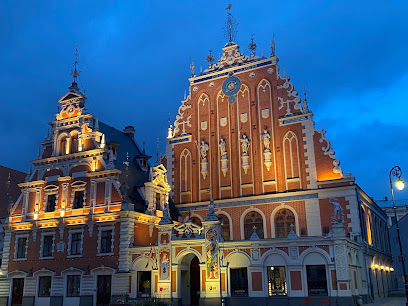
International Exhibition Center
Explore innovation and culture at Riga's International Exhibition Center, the largest and most versatile venue in the Baltics.
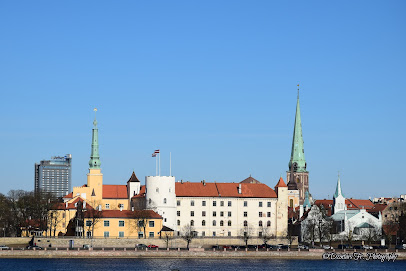
Latvian Riflemen Monument
Explore Riga's contested landmark: a powerful monument honoring Latvian Riflemen, entangled in WWI and Soviet history.
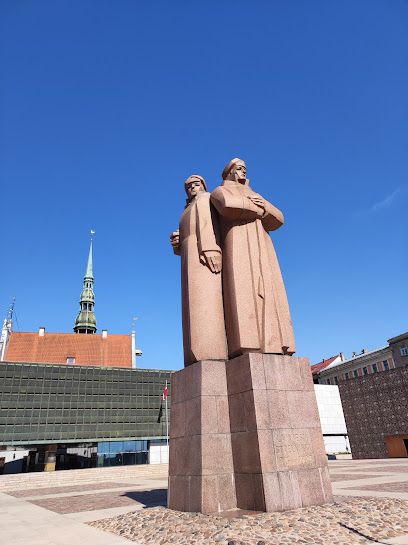
Žanis Lipke Memorial
Explore a moving tribute to Žanis Lipke, a Latvian hero who saved over 50 Jews during WWII. Experience history and reflect on humanity in Riga.
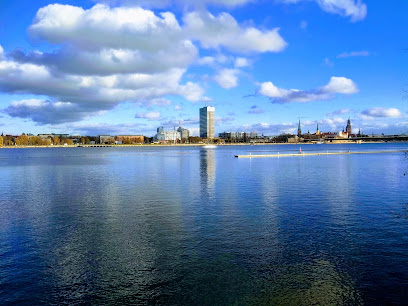
Ķīpsalas pludmale
Escape to Ķīpsalas pludmale for a refreshing urban beach experience with stunning city views, relaxation, and recreation in Riga.
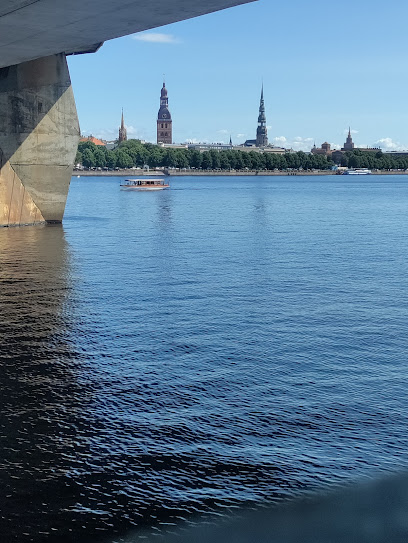
Aleksandra Vārti / Aleksandra Triumfa Arka
A neoclassical triumphal arch in Riga's Viestura Garden, commemorating the Russian victory over Napoleon and a landmark with a rich history.
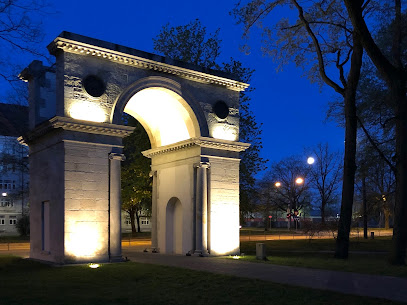
Ķīpsala
Discover Ķīpsala: Riga's tranquil island escape with wooden architecture, stunning skyline views, and a blend of history and modern life.
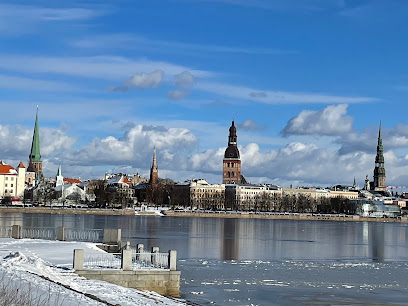
Jugenda Stila Nami, Riga
Discover Riga's architectural gem: Jugenda Stila Nami, a UNESCO site with the world's highest concentration of Art Nouveau masterpieces.
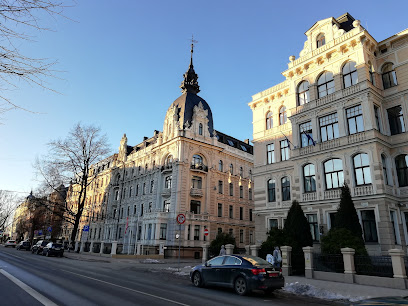
Chinese Pagoda
Discover the serene Chinese Pagoda in Riga's Kronvalda Parks, a symbol of cultural harmony and architectural beauty.
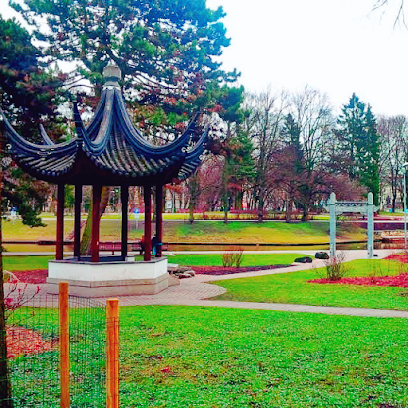
Ķipsala
Discover Ķīpsala: Riga's charming island retreat with historic wooden houses, stunning skyline views, and a peaceful riverside atmosphere.
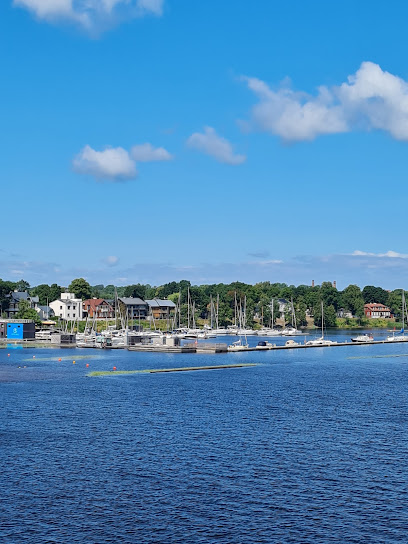
Unmissable attractions to see
Kronvalda Park
Discover the tranquility of Kronvalda Park, a green gem in the heart of Riga, blending nature, culture, and leisure for an unforgettable experience.
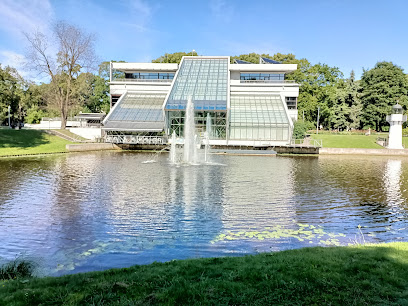
Three Brothers, Latvian Museum of Architecture
Discover the architectural heritage of Latvia at the Three Brothers in Riga, a captivating museum showcasing centuries of design and craftsmanship.
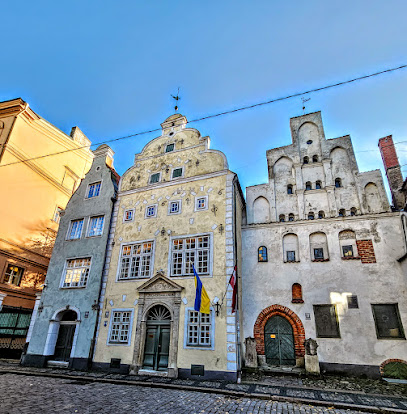
Žanis Lipke Memorial
Discover the poignant history at Žanis Lipke Memorial in Riga, a tribute to bravery and human rights during World War II.
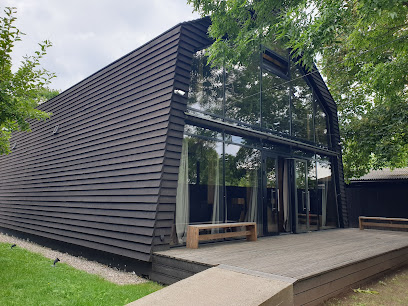
Riga Circus
Experience the magic of live performances at Riga Circus, a historic venue in the heart of Latvia's capital, offering joy for all ages.
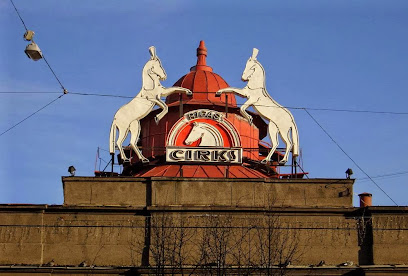
Vanšu Bridge Viewpoint
Experience stunning panoramic views of Riga's skyline and historic landmarks at the Vanšu Bridge Viewpoint, a must-visit tourist attraction.
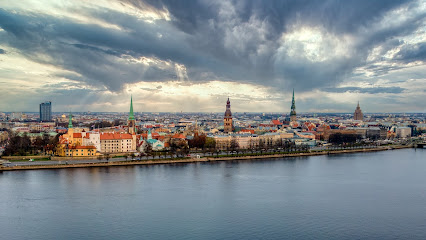
Saule Pērkons Daugava Graffiti Zīmējums
Explore the vibrant 'Saule Pērkons Daugava' graffiti in Riga, a stunning tribute to Latvian culture and nature that captivates every visitor.
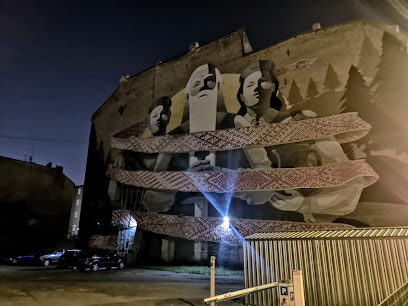
Donkey
Explore the vibrant Rātslaukums in Riga, where history, culture, and local life blend seamlessly in a picturesque setting.
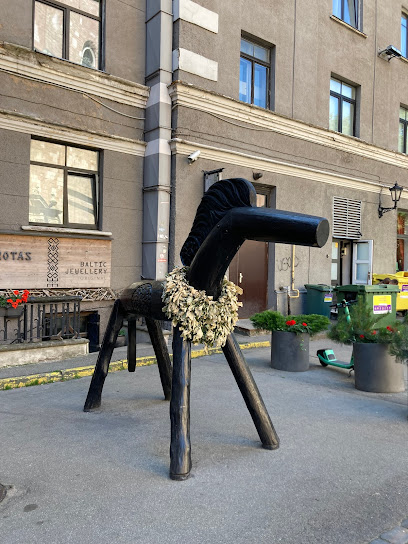
Latvian flagpole
Explore the Latvian Flagpole, a majestic symbol of national pride in Riga, embodying Latvia's rich heritage and cultural spirit.
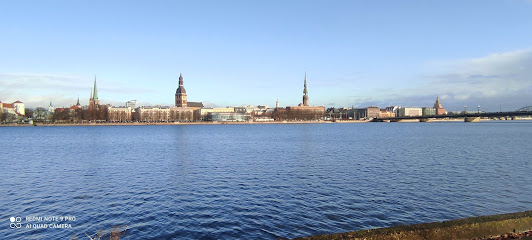
Riga tower counter
Explore the Riga Tower Counter, where history meets art in a stunning sculpture located in the picturesque Kurzeme District of Riga.
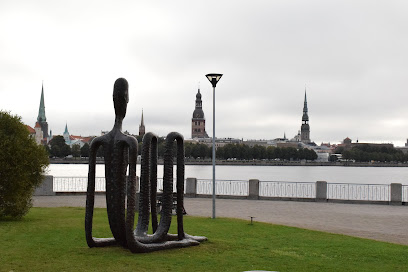
Skulptūra Pīles
Explore the enchanting Skulptūra Pīles in Riga's Northern District, where art and culture come alive in a picturesque setting.
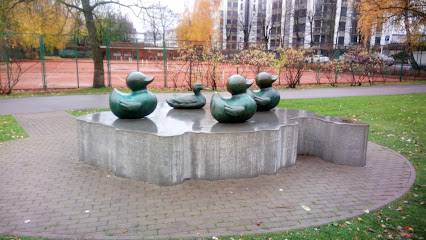
Jelgava , celojumu kugis
Experience the beauty and history of Jelgava on scenic river tours offering breathtaking views and rich cultural insights.
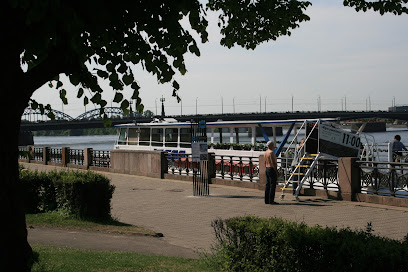
Kuģītis Liepāja
Explore the beautiful riverside of Riga at Kuģītis Liepāja, where scenic views, local culture, and delightful tours await every traveler.
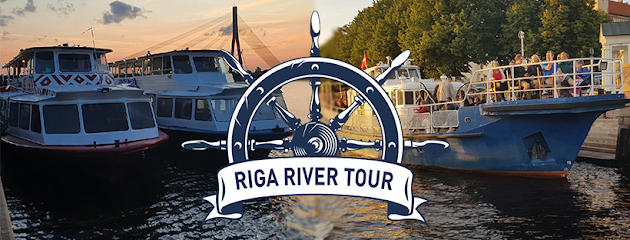
Skats uz pilsētu
Discover stunning panoramic views of Riga's skyline at Skats uz pilsētu, a must-visit tourist attraction in the heart of the Kurzeme District.
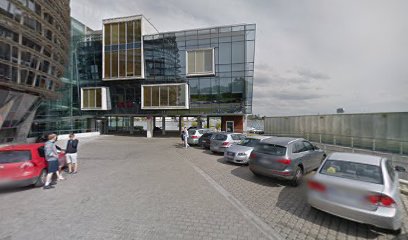
Riga tourism transport (ferry)
Experience the picturesque waterways of Riga with its enchanting ferry transport, offering scenic views and a unique perspective of the city's beauty.
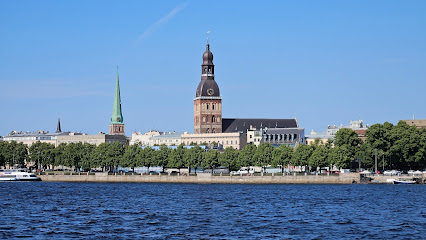
Essential places to dine
Fabrikas Restorāns
Experience the essence of Latvian cuisine at Fabrikas Restorāns in Riga, where tradition meets modernity in every dish.
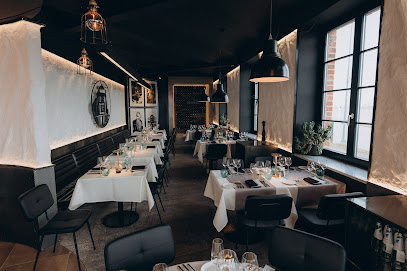
Aqua Luna
Discover Aqua Luna in Riga: A fusion of traditional flavors and modern elegance awaits you at this premier dining destination.
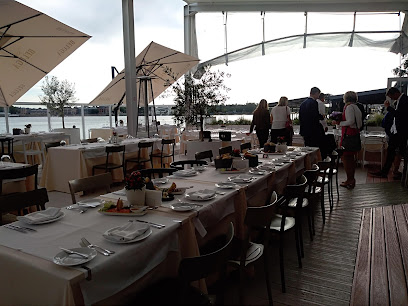
Osta, Restorāns ar skatu
Experience exquisite dining at Osta with breathtaking views of Riga's waterfront; a must-visit for food lovers.
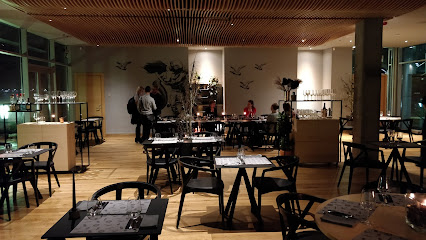
RIH Terrace bar/restaurant
Savor exquisite cuisine with breathtaking views at RIH Terrace Bar/Restaurant in Riga—an unforgettable dining experience.
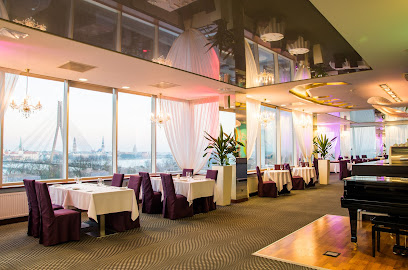
Zeest
Discover Zeest in Riga: A culinary haven where tradition meets innovation in every delicious dish.
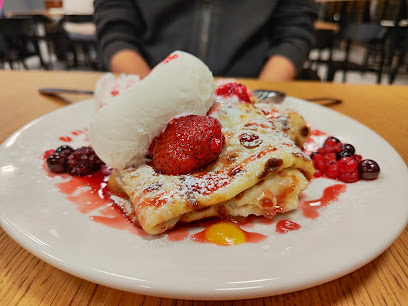
Pipars
Experience authentic Latvian flavors at Pipars in Riga – a must-visit lunch destination blending local cuisine with cozy ambiance.
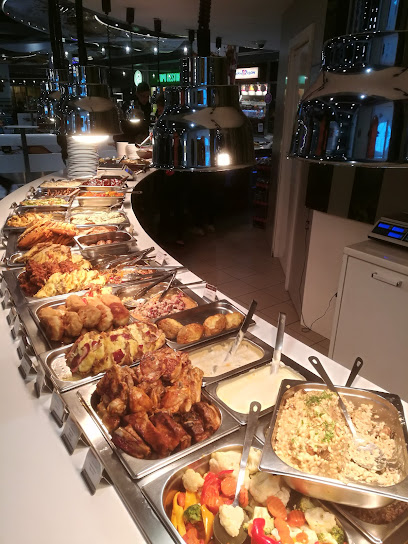
Stešavi, kafejnīca
Experience authentic Latvian cuisine at Stešavi Café in Riga's Kurzeme District – a cozy spot for delightful lunches and relaxing afternoons.
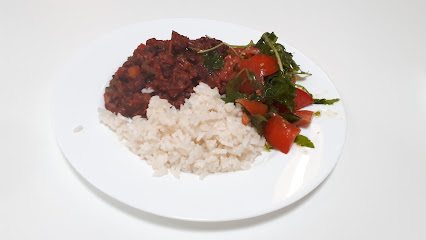
Dd
Experience the best of Latvian cuisine blended with international flavors at Dd, a top-rated restaurant located in Riga's Kurzeme District.
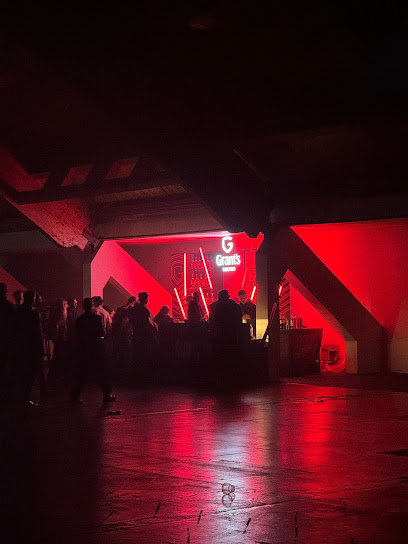
cucupoint
Discover Cucupoint in Riga - where local flavors meet international cuisine in a warm and inviting atmosphere.
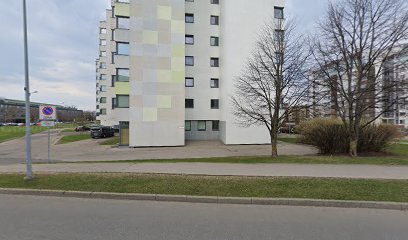
Taylor Restorāns
Discover authentic Latvian cuisine at Taylor Restorāns in Riga's Kurzeme District—a must-visit for food enthusiasts seeking local flavors.
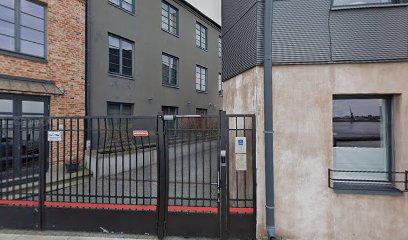
Markets, malls and hidden boutiques
Sports Direct
Explore an extensive range of sportswear and equipment at Sports Direct, Riga - your one-stop destination for athletic gear and outdoor adventure.
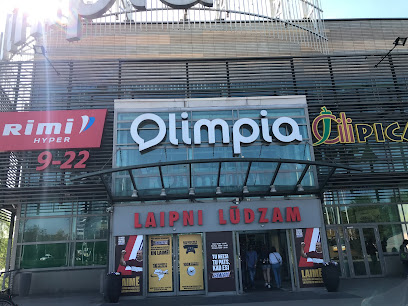
ELKOR Gift Shop suvenīru veikals
Explore ELKOR Gift Shop in Riga for unique Latvian souvenirs and gifts that beautifully capture the spirit of Latvia.
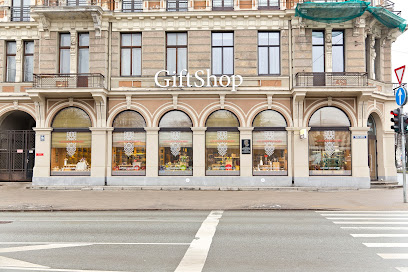
Art Nouveau Rīga - Jūgendstila paviljons
Explore the charm of Art Nouveau Rīga, a boutique showcasing exquisite craftsmanship and unique souvenirs in the heart of Latvia.
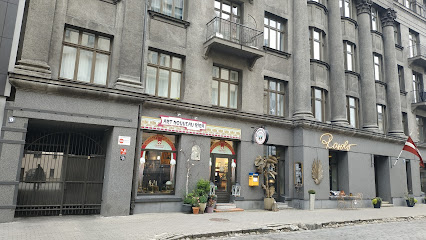
Lieliska dāvana I-C Olimpia
Explore Lieliska Dāvana I/C Olimpia for unique gifts and local treasures in the heart of Rīga, perfect for every occasion.
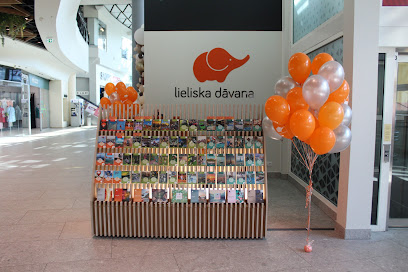
Black Cat Souvenirs
Explore the heart of Riga at Black Cat Souvenirs, where unique Latvian gifts and handcrafted treasures await every traveler.
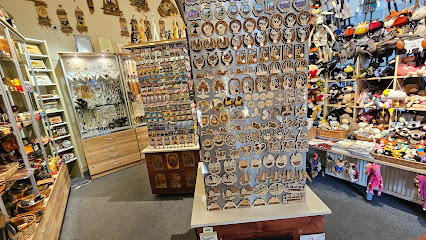
Gift shop Riga
Explore the vibrant Gift Shop in Riga for unique souvenirs and handcrafted Latvian treasures that embody local culture and artistry.
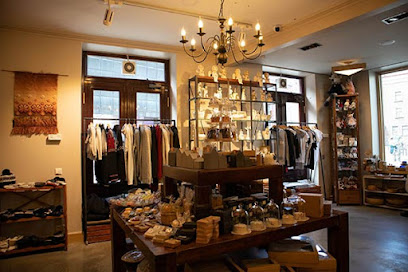
EUShoes Latvia
Discover the latest in footwear fashion at EUShoes Latvia, the ultimate shoe store in Riga, showcasing style, comfort, and individuality.
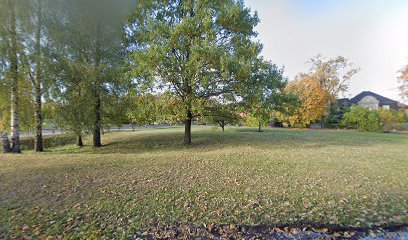
Racks Outlet
Discover unbeatable deals and unique finds at Racks Outlet, Riga's top warehouse store for savvy shoppers and bargain hunters.
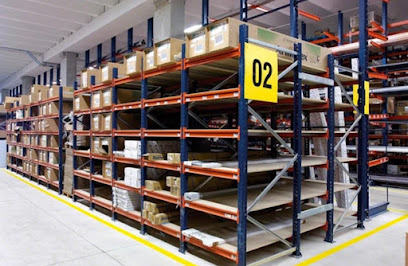
JAHONTS
Explore JAHONTS in Riga's Kurzeme District for exquisite handcrafted jewelry that embodies local artistry and elegance.

Keramikas pop up tirdziņš
Explore the vibrant world of handcrafted ceramics at Keramikas Pop Up Tirdziņš in Riga, a unique gift shop offering local art and culture.
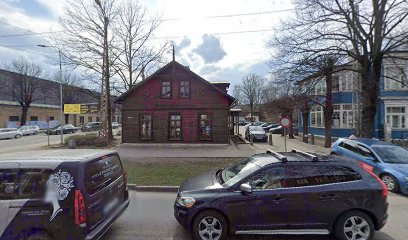
Essential bars & hidden hideouts
FUNNY FOX SPORTS, KARAOKE PUB/BAR
Dive into the vibrant nightlife at Funny Fox Sports, Karaoke Pub/Bar in Riga, where sports meet karaoke for an unforgettable experience.
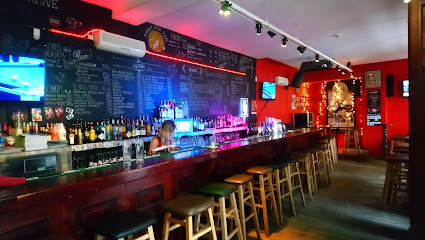
Beer House No.1
Discover the heart of Riga's beer culture at Beer House No.1 - a lively pub and restaurant with a wide selection of local brews and delicious cuisine.
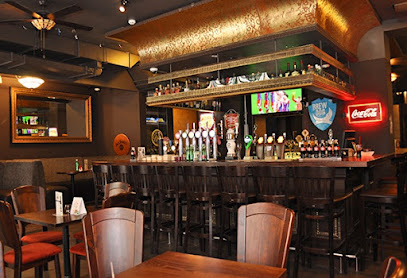
KIWI SPORTS PUB/BAR
Experience the vibrant atmosphere of KIWI SPORTS PUB/BAR in Riga - where sports, food, and fun come together for an unforgettable night out.
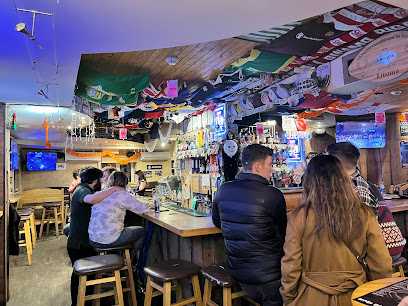
Queens
Discover the lively atmosphere and delicious menu at Queens Pub, a must-visit destination for tourists in Riga's Central District.
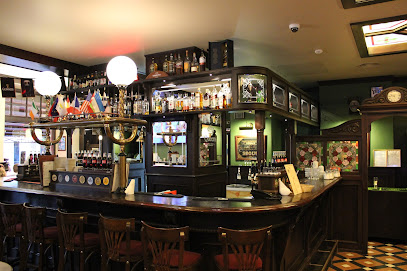
Piana Vyshnia
Experience the vibrant culture of Riga at Piana Vyshnia, a unique bar offering local flavors and a cozy atmosphere in the Central District.
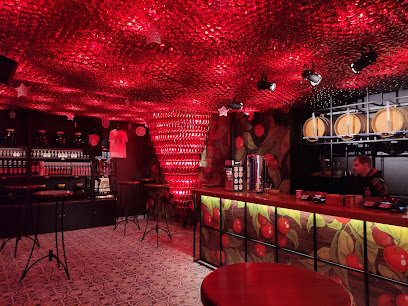
Victory Pub Riga
Discover the vibrant atmosphere of Victory Pub Riga, where local craft beers meet delicious food in a lively setting for an unforgettable experience.
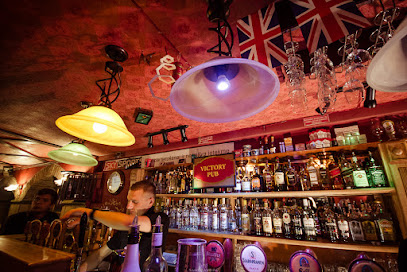
This Place Doesn't Need A Name Šķūņu
Experience the vibrant atmosphere and unique charm of This Place Doesn't Need A Name Šķūņu, a must-visit bar in the heart of Riga.
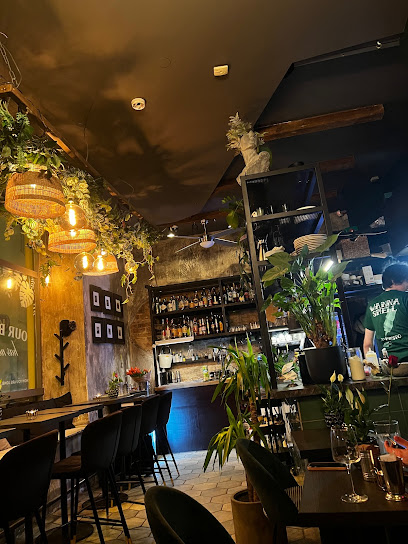
RIH Terrace bar/restaurant
Discover RIH Terrace Bar/Restaurant in Riga for stunning river views, exquisite cuisine, and a vibrant atmosphere perfect for any occasion.
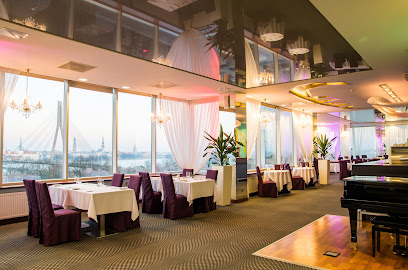
The Stage, by Two More Beers.
Discover the lively ambiance and delectable local cuisine at The Stage, by Two More Beers, in the heart of Riga's Central District.
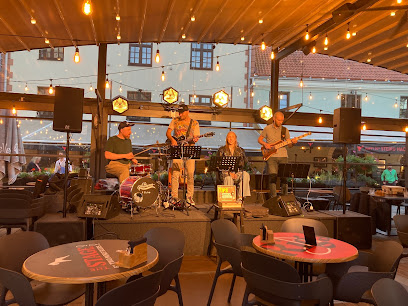
Alus krogs
Experience the vibrant bar culture at Alus Krogs, where local beers and a friendly atmosphere await you in the heart of Riga.
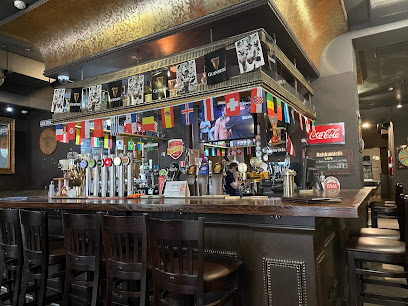
Local Phrases
-
- HelloSveiki
[Svei-ki] - GoodbyeUz redzēšanos
[Uz red-ze-sha-nos] - YesJā
[Ya] - NoNē
[Ne] - Please/You're welcomeLūdzu
[Loo-dzu] - Thank youPaldies
[Pal-dies] - Excuse me/SorryAtvainojiet
[At-vai-no-yiet] - How are you?Kā jums klājas?
[Ka yums kla-yas] - Fine. And you?Labi. Un jums?
[La-bi. Oon yums] - Do you speak English?Vai jūs runājat angļu valodā?
[Vai yoos roo-na-yat ang-lu va-lo-da] - I don't understandEs nesaprotu
[Es ne-sa-pro-tu]
- HelloSveiki
-
- I'd like to see the menu, pleaseEs vēlētos redzēt ēdienkarti, lūdzu
[Es vee-le-tos red-zeet e-dyien-kar-ti, loo-dzu] - I don't eat meatEs nēēdu gaļu
[Es ne-yay-du ga-lu] - Cheers!Priekā!
[Prye-ka] - I would like to pay, pleaseEs vēlētos samaksāt, lūdzu
[Es vee-le-tos sa-ma-kaat, loo-dzu]
- I'd like to see the menu, pleaseEs vēlētos redzēt ēdienkarti, lūdzu
-
- Help!Palīdzība!
[Pa-li-dzi-ba] - Go away!Iet prom!
[Yet prom] - Call the Police!Zvaniet policiju!
[Zva-niet po-li-tsi-yu] - Call a doctor!Zvaniet ārstu!
[Zva-niet aar-stu] - I'm lostEs esmu pazudis
[Es es-mu pa-zu-dis] - I'm illMan ir slikta dūša
[Man eer sli-ak-ta doo-sha]
- Help!Palīdzība!
-
- I'd like to buy...Es vēlētos pirkt...
[Es vee-le-tos peerk-t] - I'm just lookingEs tikai skatos
[Es ti-ka-i ska-tos] - How much is it?Cik tas maksā?
[Tsik tas ma-ksa] - That's too expensiveTas ir pārāk dārgi
[Tas eer pa-raak da-rgi] - Can you lower the price?Vai jūs varat pazemināt cenu?
[Vai yoos va-rat pa-ze-mi-naat tse-nu]
- I'd like to buy...Es vēlētos pirkt...
-
- What time is it?Cik ir pulkstenis?
[Tsik eer pulk-ste-nis] - It's one o'clockIr viens pulkstenis
[Ir vyens pulk-ste-nis] - Half past (10)Pusdesmit
[Pus-des-mit] - MorningRīts
[Reets] - AfternoonPēcpusdiena
[Pec-pus-dyie-na] - EveningVakars
[Va-kars] - YesterdayVakar
[Va-kar] - TodayŠodien
[Sho-dyen] - TomorrowRīt
[Reet] - 1Viena
[Vyena] - 2Divi
[Dee-vee] - 3Trīs
[Trees] - 4Četri
[Che-ti] - 5Pieci
[Pyet-si] - 6Seši
[Se-shee] - 7Septiņi
[Sep-tee-nyi] - 8Astoņi
[A-sto-nyi] - 9Deviņi
[De-vee-nyi] - 10Desmit
[Des-mit]
- What time is it?Cik ir pulkstenis?
-
- Where's a/the...?Kur ir...?
[Koor eer] - What's the address?Kāda ir adrese?
[Ka-da eer a-dre-se] - Can you show me (on the map)?Vai jūs varat man parādīt (uz kartes)?
[Vai yoos va-rat man pa-ra-diit (uz kar-tes)] - When's the next (bus)?Kad ir nākamais (autobuss)?
[Kad eer na-ka-mais (au-to-booss)] - A ticket (to ....)Biļete (uz ....)
[Bee-ye-te (uz)]
- Where's a/the...?Kur ir...?
History of Kipsala
-
Kipsala's history dates back to the 12th century when it was a significant settlement for fishermen and traders. Its strategic position on the Daugava River made it a vital hub for maritime trade, connecting Riga with other Baltic ports. The area's early inhabitants relied heavily on fishing and agriculture, laying the foundation for the community's development.
-
The 19th century marked a period of architectural transformation in Kipsala, as many wooden houses were constructed, showcasing the typical wooden architecture of Latvian cities. This era saw the emergence of elegant villas and residential buildings that reflected the affluence of the middle class, contributing to Kipsala's charm and historical significance within Riga.
-
During the early 20th century, Kipsala became a cultural center, attracting artists, writers, and intellectuals. The neighborhood was home to numerous cultural institutions and galleries, fostering a vibrant artistic community. This period was characterized by a flourishing of Latvian national identity, with Kipsala playing a key role in the cultural awakening of the region.
-
World War II profoundly affected Kipsala, as it did much of Latvia. The neighborhood experienced significant destruction during the war, with many buildings damaged or destroyed. Post-war reconstruction efforts transformed Kipsala, leading to a mix of restored historical architecture and new developments, reshaping the neighborhood's character.
-
In recent decades, Kipsala has undergone revitalization, balancing modern development with historical preservation. The area is now recognized for its unique blend of historical and contemporary architecture, alongside initiatives that promote the cultural heritage of Riga. Kipsala is home to various museums, galleries, and cultural events, reflecting its ongoing importance to the city's identity.
Kipsala Essentials
-
Kipsala is easily accessible from various neighborhoods in Riga. If you're coming from the city center, you can take tram line 1 or 4, which will drop you off at the Kipsala stop. Alternatively, buses 22 and 23 also serve the area from the central bus station. For those arriving at Riga International Airport, taxis and rideshare services are available, taking about 20 minutes to reach Kipsala.
-
Kipsala is a relatively small neighborhood, making it easy to explore on foot. For longer distances, public transport options include trams and buses that connect to other parts of Riga. Biking is also a popular option, with various rental shops available. Additionally, you can find electric scooters scattered throughout the neighborhood for quick and convenient travel.
-
Kipsala is generally considered a safe neighborhood for tourists. However, standard precautions should be taken, especially at night when it’s best to avoid poorly lit areas. Crime rates are low, but it’s wise to remain vigilant in crowded places to protect your belongings. Areas around the bus station and some outskirts may have higher instances of petty crime, so it's advisable to stay aware of your surroundings.
-
In case of an emergency, you can dial 112 for police, fire, or medical assistance. The closest hospital is located in nearby centers. It's advisable to have travel insurance that covers medical emergencies. For minor health issues, local pharmacies are available, and English is often spoken.
-
Fashion: Do dress comfortably, but modest attire is appreciated in religious sites. Avoid overly casual wear like beachwear. Religion: Do respect local customs, especially when visiting churches. Public Transport: Do offer your seat to elderly passengers. Don't use your phone loudly. Greetings: Do greet with a smile and a firm handshake. Eating & Drinking: Do try local dishes and accept food offers. Don't waste food or drink excessively in public.
-
To experience Kipsala like a local, visit the Kipsala Market for fresh produce and unique local products. Engage with residents, as they are often open to sharing stories about the neighborhood. For a unique view of the city, consider taking a walk along the Daugava River embankment, especially at sunset. Participating in local festivals or events can also provide insight into the culture and community spirit of Kipsala.
Nearby Cities to Kipsala
-
Things To Do in Jurmala
-
Things To Do in Sigulda
-
Things To Do in Cesis
-
Things To Do in Talsi
-
Things To Do in Šiauliai
-
Things To Do in Kuldiga
-
Things To Do in Panevėžys
-
Things To Do in Valga
-
Things To Do in Ventspils
-
Things To Do in Pärnu
-
Things To Do in Kuressaare
-
Things To Do in Viljandi
-
Things To Do in Utena
-
Things To Do in Liepaja
-
Things To Do in Daugavpils










